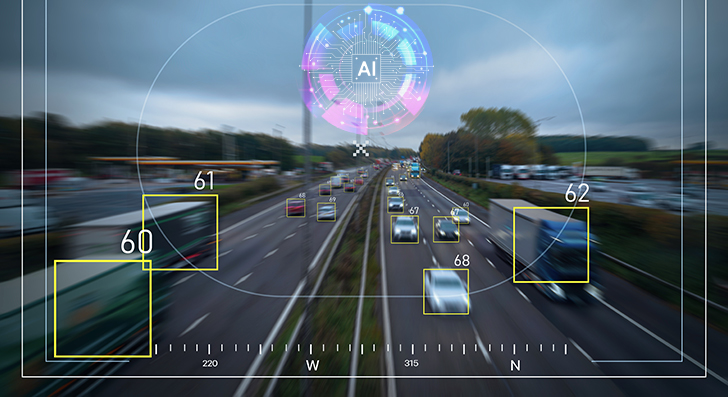Efficient data handling is increasingly important for attaining a competitive edge in the current data-centric business environment. Data annotation is an essential part of this challenge, as it is vital to prepare data for machine learning algorithms. It is crucial for supervised learning in AI, converting raw data into valuable insights with meaningful labels. As AI’s role in industries grows, accurate data labeling becomes essential for training smarter models. Although crucial, data annotation has typically demanded a substantial investment of time and energy—a luxury that companies can hardly afford. What if the process could be made more efficient?

Generative AI is effectively changing the data annotation practice by accelerating the process, enhancing accuracy, and minimizing manual effort. Companies can now leverage AI alongside human teams to boost speed and precision, cut costs, and ease resource demands. Let’s explore how Gen AI optimizes data annotation across industries, improving efficiency and freeing up resources.
Table of Contents
Why Speed and Precision Matter in Data Annotation
How Gen AI Enhances Data Annotation Efficiency
- Automation of Repetitive Tasks
- Enhanced Accuracy through Learning
- Cost Efficiency with Data Annotation Outsourcing
Outsourcing: The Strategic Edge in Data Annotation
Addressing the Challenges: Limitations of Gen AI in Data Annotation
Best Practices for Implementing Gen AI in Data Annotation
Why Speed and Precision Matter in Data Annotation
The volume of data produced today is unprecedented, with businesses generating vast datasets that need prompt and accurate labeling to remain competitive. Speed in data annotation is no longer a luxury—it’s a necessity. The longer it takes to annotate data, the slower a business’s machine learning models are to develop and improve, leading to delays in insights and decision-making.
Manual annotation, while accurate, can’t keep pace with the rapid growth of data. As datasets expand, the need for efficiency in labeling becomes critical. Gen AI, with its ability to handle vast amounts of data at high speeds, fills this gap. Companies that can streamline data labeling gain a valuable edge, ensuring their AI models evolve in step with their data.
How Gen AI Enhances Data Annotation Efficiency
Let’s walk through the ways Gen AI accelerates and optimizes data annotation. Rather than viewing Gen AI as merely a replacement for manual efforts, it’s better to see it as a partner, one that brings automation, precision, and cost-efficiency to the table.
1. Automation of Repetitive Tasks
One of the biggest advantages of Gen AI in data annotation is its capacity for automating repetitive labeling tasks. For large datasets with straightforward labeling needs, Gen AI can manage bulk annotations, drastically reducing the manual effort needed.
For example, imagine a vast dataset containing thousands of images, each requiring a “cat” or “dog” label. Instead of having a team manually label each image, Gen AI can take over, processing the dataset in a fraction of the time. This allows human annotators to focus on more complex or nuanced tasks, such as identifying edge cases or subtle patterns, ultimately speeding up the entire annotation workflow.
2. Enhanced Accuracy through Learning
In the healthcare industry, AI is frequently used to analyze medical images. Accurate labeling of these images improves AI’s ability to detect critical patterns and anomalies. Generative AI learns from each annotation, making it invaluable for achieving higher accuracy in high-stakes areas, enhancing data quality without adding to human labor.
Think about the healthcare sector, where artificial intelligence is frequently utilized for examining medical imagery. The better the labeling of these images, the more proficient the AI becomes in recognizing important patterns or deviations. The capability of Gen AI to improve its accuracy in critical areas by utilizing annotations makes it a valuable tool in maintaining high quality data without needing additional human effort.
3. Cost Efficiency with Data Annotation Outsourcing
Data annotation can be resource-intensive, and traditional outsourcing methods often involve large teams working manually, which adds to operational costs. Gen AI dramatically reduces these costs by cutting down on human labor and time, making data annotation outsourcing more cost-effective for companies looking to scale.
For instance, a financial services company that needed to annotate customer transaction data for fraud detection turned to Damco’s outsourced data annotation services integrated with Gen AI. The result? The company saved approximately 35% on operational costs and saw a notable improvement in annotation quality, providing better input for their fraud detection models. This example underlines the tangible financial benefits of Gen AI in data annotation, allowing businesses to allocate resources more efficiently.
Explore Compliant, Ethical, and Quality Data Annotation Services.
Outsourcing: The Strategic Edge in Data Annotation
Despite the capabilities of Gen AI in handling a significant portion of data annotation, human supervision remains vital, particularly for complex data categories. This is when outsourcing turns into a tactical benefit. Why overload your internal team with time-consuming chores when expert data annotation services can handle them more efficiently?
By outsourcing data annotation services, companies can concentrate on their primary strengths while tapping into deep domain knowledge. Experienced service providers can handle different volumes of data while maintaining high quality, providing flexible solutions that can adapt to a company’s changing requirements.
Consider a tech firm creating a chatbot powered by AI. By delegating data labeling services to an external provider, the company can maintain top-notch training data and direct its internal resources on improving algorithms and enhancing the chatbot’s user experience. Businesses benefit not just from Gen AI through outsourcing, but also from the expertise and quality assurance offered by specialized partners.
Addressing the Challenges: Limitations of Gen AI in Data Annotation
While Gen AI offers substantial advantages in data annotation, it’s essential to recognize its limitations. Gen AI isn’t a cure-all; there are certain challenges it faces when it comes to complex or sensitive data. Here’s what to consider:
I) Complex Data Types
Gen AI excels with repetitive, structured data, but it can struggle with complex or unstructured data. For example, annotating medical records with intricate clinical notes might require human expertise to ensure precision. In such cases, combining AI with human intelligence (“human-in-the-loop” approach) becomes necessary.
II) Training and Learning Curves
Like any AI system, Gen AI requires significant training to perform effectively. If the initial annotations are flawed, the system will struggle to deliver high-quality results. This makes quality control at the early stages crucial.
III) Ethical Considerations
With automation comes the risk of ethical concerns—especially around privacy and bias. Organizations need to ensure that their Gen AI systems don’t perpetuate biases in the data, leading to flawed AI models. Regular audits of annotated datasets are essential to maintain fairness and accuracy.
Best Practices for Implementing Gen AI in Data Annotation
To harness Gen AI effectively in data annotation, businesses should follow these best practices:
- Start Small and Scale: Begin by automating a specific, repetitive task and evaluate the results. Over time, expand Gen AI’s role in more complex annotation projects.
- Human-in-the-Loop: For complex or sensitive data, keep humans involved to oversee and validate the annotations.
- Regular Audits: Continuously audit the AI’s performance to ensure accuracy and fairness in the annotations.
- Select the Right Partner: Choosing the right data annotation partner that integrates Gen AI solutions is critical. They can provide the expertise and tools needed to scale efficiently without compromising quality.
The Future of Gen AI in Data Annotation
As technology progresses, the importance of Gen AI in data annotation will keep expanding. The demand for quick, affordable annotation solutions will continue to grow as data volume increases. Businesses that implement Gen AI-driven data labeling early will probably have a competitive advantage, creating top-performing models faster and more effectively. Nevertheless, when considering the future, ethical concerns, particularly regarding bias and fairness, will continue to be important. Transparent data annotation practices are crucial for upholding integrity and trust in AI-driven systems, especially in healthcare and finance domains
To Sum Up
By automating routine tasks, enhancing accuracy, and reducing expenses, Gen AI-led data annotation is fundamentally changing the way in which businesses handle their key resource, data. Exploring scalable AI-driven solutions can keep you ahead if you’re thinking of outsourcing data annotation or seeking efficiency gains for your AI projects? Working with a reliable data annotation service provider can provide the precision and effectiveness needed for your projects to succeed in today’s competitive market.





